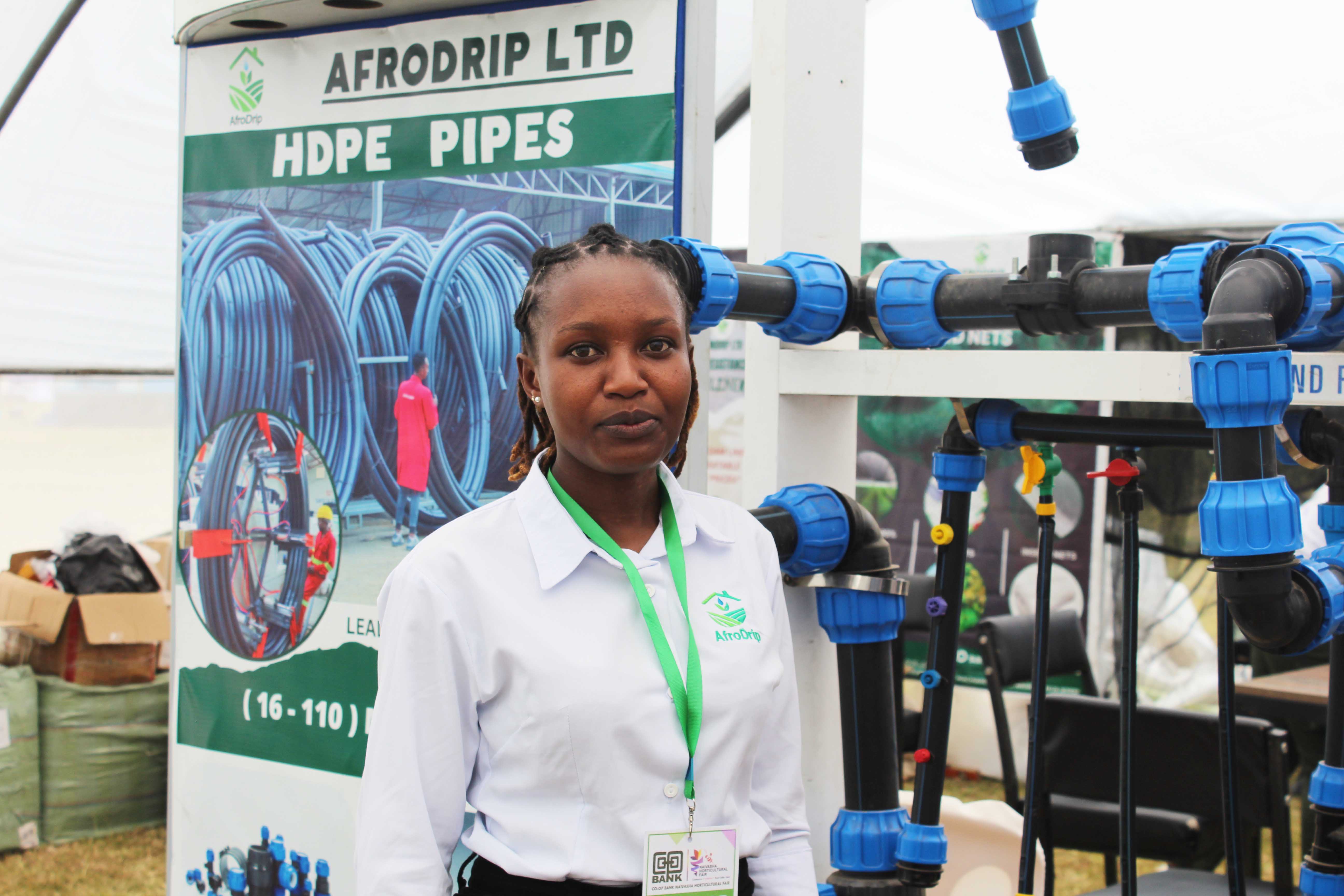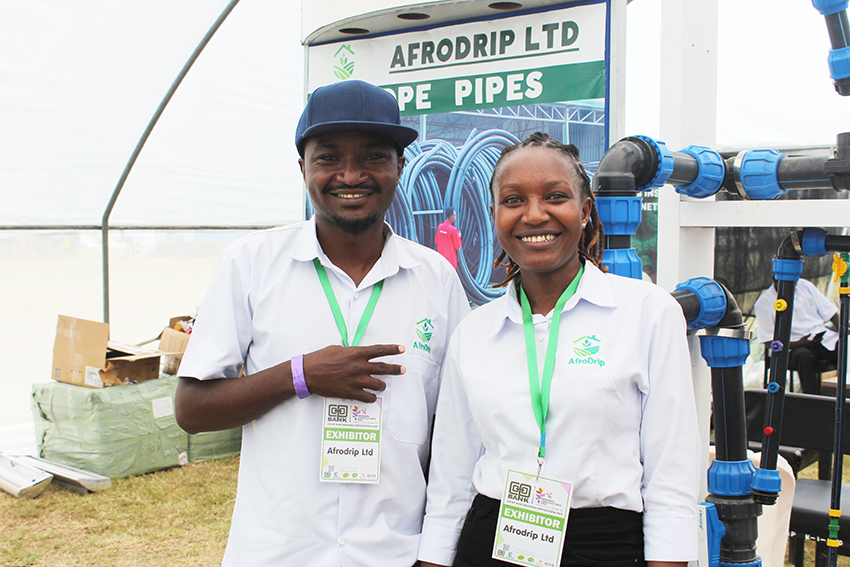
AfroDrip Ltd occupies a unique and strategic position in the Kenyan irrigation industry market space supplying crucial equipment and service provision for the farmers in Kenya.
Located at its head office on Mombasa Road in Nairobi, AfroDrip produces a formidable range of irrigation products
ranging from drip lines, and HDPE and PVC pipes, dam liners, greenhouse polythene, and shade nets. Currently, AfroDrip has between 10 to 15 branches and has taken a central role in supplying cheap dripping irrigation systems to all the farmers in the nation.\
“We understand that irrigation is critical, especially for farmers in arid and semi-arid regions,” says Lydia Kinara from AfroDrip. “That’s why our products are priced competitively to ensure that even the smallest farmers can access them.”
The company’s main product, Jumbo Drip Lines is proving to be a sensation in the market due to the double emitter design where if one dripping point is blocked, there is always another one that will provide the water supply. This dedication to quality, as Kinara puts it, is what makes AfroDrip different from other competitors in the market.
“Our fittings – especially the PN16 fittings – are some of the strongest in the market and we guarantee the durability and reliability of our irrigation systems,” she explains.
This initiative is of most interest to AfroDrip because it targets farmers using drip irrigation to improve their efficiency.

Realizing that capital is sometimes an issue, especially in dry areas, AfroDrip has special deals for locally produced inputs such as drip lines and shade nets.This means that farmers can easily invest in precision irrigation that can reduce the wastage of water and increase production.Kinara adds that the firm often works with NGOs and dealers and sells products to them for use in community-based farming.
At AfroDrip, management understands that sustainability is crucial as they also currently recycle. This has been mechanized whereby the waste materials are crushed and used as raw materials to produce new products in the company. Although, given the durability of the AfroDrip product, there are ways that minimize disposability, the company advises customers to recycle or reuse wherever possible.
Due to the climatic change particularly the changes affecting the rainfall in Kenya, many farmers have relied on irrigation farming. Looking at recent years, owing to unpredictable weather factors, farmers, especially in the arid and semi-arid regions of the country are opting for the use of irrigation. Products like dam liners by AfroDrip enable farmers to collect and save rainwater for use in the dry season.
“Over the years, I have seen people adopt irrigation systems since they realize rain-fed farming is not sustainable. These challenges explain why our products have been developed to enable farmers,” Kinara asserts.
AfroDrip currently concentrates on producing pipes, drip lines, and shade nets; however, targeted expansion options are considered. Kinara says the company intends to seek other related irrigation equipment businesses such as machinery that drills water.
AfroDrip is playing a pivotal role in transforming agriculture in Kenya by making irrigation more accessible and affordable. As climate change continues to impact farming practices, companies like AfroDrip are essential in helping farmers adapt, improve yields, and secure food production for the future.
